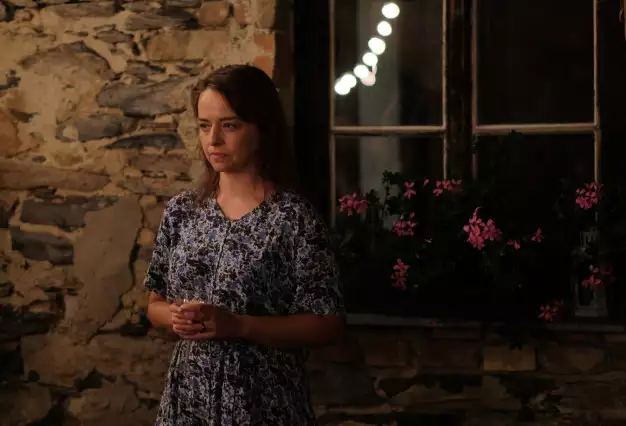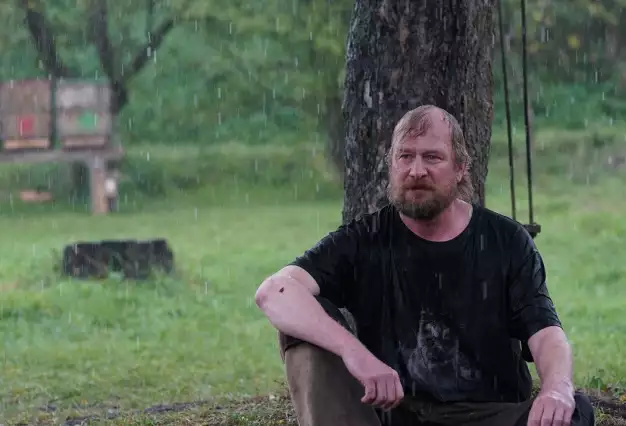
08 November 2017
Toman: The Story of a Ruthless Communist
Toman: The Story of a Ruthless Communist

Seven years since his last film, Identity Card, producer and director Ondřej Trojan has a new project. This time, the story revolves around Communist Zdeněk Toman, a controversial figure in modern Czech history.
Article by Hedvika Petrželková for Czech Film Magazine / Fall 2017)
Ondřej Trojan has directed several TV movies and three feature films, including Zelary, a romantic drama set in the 1940s, nominated for an Oscar as Best Foreign Film in 2004. As a producer, Trojan has worked on most of the films directed by Jan Hřebejk, a partnership that dates back to Cosy Dens in 1999, a cult hit in the Czech Republic. Trojan also produced Hřebejk’s Divided We Fall, nominated for an Oscar in 2001, and the worldwide successful animated film The Oddsockeaters (directed by Galina Miklínová). Now, Trojan is shooting his fourth feature film, a post-World War II historical drama titled simply Toman, after its main character. Zdeněk Toman (b. 1909) served as head of the Foreign Intelligence Service, where he heavily shaped political developments from 1945 to 1948 — including the Czechoslovak Communist Party’s ascension to power in the coup of February 25, 1948.
 The first part of shooting took place this spring, with the remainder planned for the fall. “I find it fascinating to deal with this historical period, which has fundamentally influenced our lives to this day,” Trojan says. “Many successors of the hardliners continued to work both secretly and publicly until 1989, and many of them, unfortunately, are still there to this day. It’s sad to see the methods they adopted from their predecessors still being practised in our politics today.”
The first part of shooting took place this spring, with the remainder planned for the fall. “I find it fascinating to deal with this historical period, which has fundamentally influenced our lives to this day,” Trojan says. “Many successors of the hardliners continued to work both secretly and publicly until 1989, and many of them, unfortunately, are still there to this day. It’s sad to see the methods they adopted from their predecessors still being practised in our politics today.”
The cinematographer is Tomáš Sysel, and the script, based on an original story by Frank Reiss, was written by Trojan together with Zdeňka Šimandlová. Toman is produced by Total HelpArt (T.H.A.) and the Slovak production company PubRes, co-produced by Czech Television and Radio and Television of Slovakia. The project is supported by the Czech Film Fund and the Slovak Audiovisual Fund.
Conveying History to the Younger Generations
Historical events have also figured prominently in Trojan’s prior films. Zelary takes place in the 1940s, during the Second World War, while Identity Card, a bitter comedy about adolescence, is set in 1970s communist Czechoslovakia. Yet more than a simple historical drama, Toman is an attempt at a precise historical reconstruction. “I don’t want to make a fake story set against the backdrop of historical facts. Toman will be as faithful as possible to the events that occurred, based on archival documentation and eyewitness testimony,” Trojan says. “My aim, as with my previous films set in historical periods, is to convey history to my sons. I always try to shoot movies for a young audience. I want them to be able to experience history and understand its meaning for the present.”
The film’s main character is an unsavory politician and a dubious entrepreneur, but also the savior of hundreds of Jews. Zdeněk Toman was born Zoltán Goldberger in 1909, in Sobrance, Slovakia, the son of Hungarian Jews. The film portrays him as an unscrupulous careerist who worked his way up from low-level bureaucrat to head of Foreign Intelligence. In this position, he didn’t hesitate to blackmail, intimidate, and levy false accusations to “purge” intelligence of its democratic components and strengthen the Communist presence in the bureau. He also exploited his diplomatic passport and international contacts to fraudulently raise money for Communist Party electoral campaigns. Finally, there was his third role as savior of the Jews, in which he organized the departure of East European Jews and refugees who survived the Holocaust through Czechoslovakia to Palestine, then supplied them with arms. However, his help was never selfless. He charged high commissions to Jewish organizations, in the process amassing tremendous wealth.
 After the war, he was the first high-ranking Communist leader imprisoned for knowing too much. The Communist Party’s fears that he would disclose their secrets were so great that they chose to let him escape jail in the summer of 1948 and make his way to the US zone in Germany. Eventually, Toman settled in Venezuela. He never returned to Czechoslovakia, and died in 1997. Trojan is confident that it isn’t only Czechs who will be interested in the story, but also foreign viewers. “The film deals not only with the Jewish question, but also with events that took place in Europe between 1945 and 1948, as well as America’s failure and naiveté, which led them to believe something like the February coup couldn’t happen. It seems mankind is unable to learn from history, with the same mistakes repeated over and over, until eventually the great civilizations collapse. It’s important for me to depict the confidants and unprincipled people who can be easily manipulated and led by strings like puppets.
After the war, he was the first high-ranking Communist leader imprisoned for knowing too much. The Communist Party’s fears that he would disclose their secrets were so great that they chose to let him escape jail in the summer of 1948 and make his way to the US zone in Germany. Eventually, Toman settled in Venezuela. He never returned to Czechoslovakia, and died in 1997. Trojan is confident that it isn’t only Czechs who will be interested in the story, but also foreign viewers. “The film deals not only with the Jewish question, but also with events that took place in Europe between 1945 and 1948, as well as America’s failure and naiveté, which led them to believe something like the February coup couldn’t happen. It seems mankind is unable to learn from history, with the same mistakes repeated over and over, until eventually the great civilizations collapse. It’s important for me to depict the confidants and unprincipled people who can be easily manipulated and led by strings like puppets.
Explaining the financing, Trojan says, “We started filming once we had about 70 per cent of the money. Now it’s 80 per cent, and I’m confident that we’ll cover the remaining 20.” He adds that the project has a budget of 1,340,000 euros. The Czech Film Fund supported the project in 2015 to the tune of 350,000 euros. “We’ve already arranged for minimum guarantees with the distributors, and we’ll also support the project from our company’s resources, as we did with my previous films,” Trojan says.
Toman is slated to premiere in April 2018.




